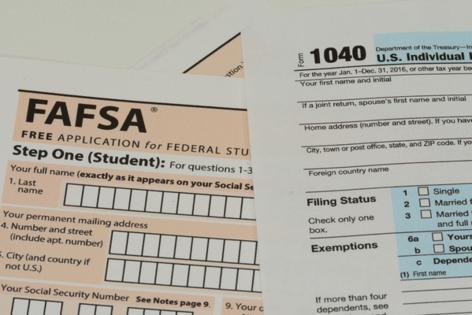Editorial: Government incompetence is keeping kids out of college
Published in Op Eds
President Joe Biden’s botched rollout of a revamped financial aid form reveals a stunning lack of managerial competence. It has left colleges unable to tell millions of students how much they’ll have to pay, causing some to delay enrolling and others to drop the idea altogether. This easily avoidable failure threatens to deprive low-income Americans of a college education. And Biden, the country’s chief executive, needs to hold to account the officials who are directly responsible.
The mess stems from the congressionally mandated overhaul of the Free Application for Federal Student Aid, or FAFSA, a form used to determine eligibility for government grants and loans. Once verified by the Education Department, student records are shared with colleges, which then inform students of their tuition costs based on the financial assistance they can expect. In past years, the FAFSA form — with more than 100 questions demanding more data than a tax return — discouraged many low-income students from completing the application, denying them thousands in grant money. In December 2020, Congress told the department to design something simpler.
The work took more than three years and cost $336 million — and the results have been disastrous. Launch delays and various technical snafus caused FAFSA completion rates to plummet by 40%. Despite having only half as many questions, the shorter form has somehow managed to be even more confusing. College counseling groups say it’s taking applicants twice as long to fill out.
The government is now months behind in sending student records to schools and state financial aid agencies. Many colleges aren’t expected to provide estimated aid packages until the summer, leaving families little time to weigh their options. Lacking a clear idea of expected costs, poorer students are less likely to enroll. That would exacerbate the post-pandemic drop in college enrollment — already at a two-decade low — and threaten the survival of dozens of cash-strapped institutions.
To call the government’s performance pathetic would be an understatement. Congressional Republicans have planned hearings on whether Biden’s misguided focus on student loan debt forgiveness distracted officials from fixing the FAFSA — a policy that, unlike the administration’s debt cancellation push, has actually been approved by bipartisan majorities in Congress. A thorough probe of this mismanagement is certainly warranted, as is a broader review of the federal government’s chronic inability to make basic upgrades to its technology.
But lawmakers should go further. Authorizing the Internal Revenue Service to calculate families’ eligibility for aid when they file their tax returns would save a ton of paperwork and give students more time to plan. And there’s no reason why students from households that already qualify for means-tested federal benefits, such as food stamps, should have to submit the same information to the government twice. Ideally, Congress should order the Education Department to use income tax data to calculate students’ aid eligibility and give that information to colleges and students directly, phasing out the stand-alone FAFSA entirely. Research has shown that simplifying the financial aid process for low-income students can significantly boost their chances of starting and completing college.
There’s growing skepticism about the value of traditional college degrees, so it bears repeating that higher education remains a sound investment and tool of economic mobility for disadvantaged students. The government — including the president — should be making access easier, not getting in the way.
____
The Editorial Board publishes the views of the editors across a range of national and global affairs.
©2024 Bloomberg L.P. Visit bloomberg.com/opinion. Distributed by Tribune Content Agency, LLC.







Comments